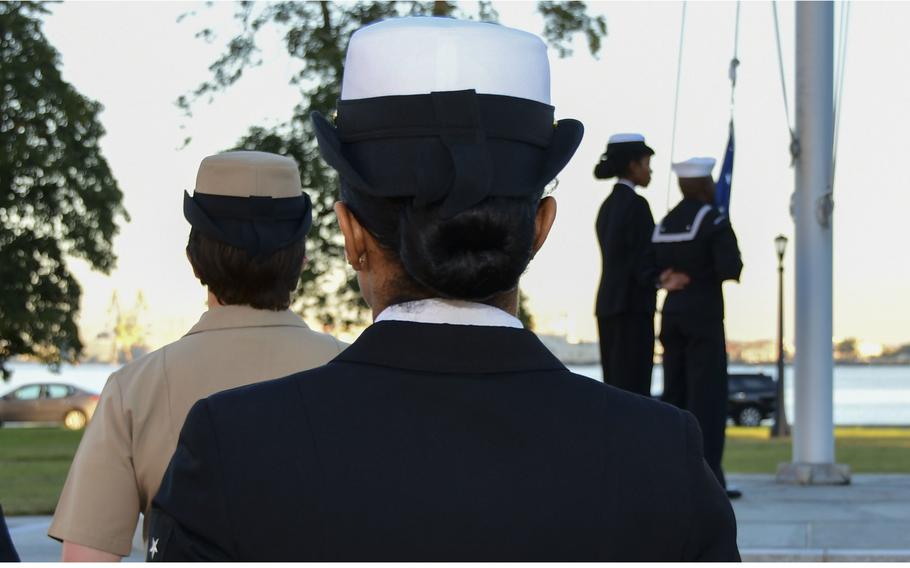
Members of Naval Medical Center Portsmouth, Va., observe morning colors in October 2018 before gathering for a group photo with their combination or “bucket” covers. (U.S. Navy)
WASHINGTON — The Navy has lifted its ban on sailors keeping their hands in their pockets along with other uniform changes announced Wednesday in an updated service policy.
“Sailors are authorized to have hands in their pockets [and] when doing so does not compromise safety nor prohibit the proper rendering of honors and courtesies,” the service memo said.
The policy changes take effect immediately, which resulted from feedback from sailors and requests from commanders, the memo said.
The Navy is also bringing back the female combination cover, known as the bucket cover, which was eliminated in 2018. The female combination cover can be worn by sailors of any rank with the service dress and dinner dress uniforms, as well as by chief petty officers and officers while in service khaki and summer white uniforms.
The bucket cover cannot be purchased at Navy Exchange Uniform Centers and must be “privately obtained if desired for wear.”
The service is also allowing female sailors to wear the tiara as an optional uniform component when wearing dinner dress blue and white jacket uniforms. Sailors can purchase the tiara from the Navy Exchange online as a “special order item.”
Women can now wear false eyelashes or eyelash extensions that “project a natural appearance and are no longer than 14 millimeters in length as measured from the eyelid to the tip of the eyelash.”
Female sailors are also allowed to wear T-shirts specifically designed for women if the shirts adhere to the Navy’s requirements for color, fabric and neck configuration.
“The intent of this policy update is to address expressed dissatisfaction regarding the required wear of male or unisex T-shirts that are not designed to fit female bodies,” the memo said.
All sailors are now allowed to wear black or navy blue leggings or tights with the service’s physical training shorts and wear “commercially procured coyote brown backpacks” while in the Navy working uniform.
Other uniform changes include allowing chaplains to wear their new insignia warfare pin, which the service announced in December, and the Navy’s forthcoming drone pilots to wear their wings.